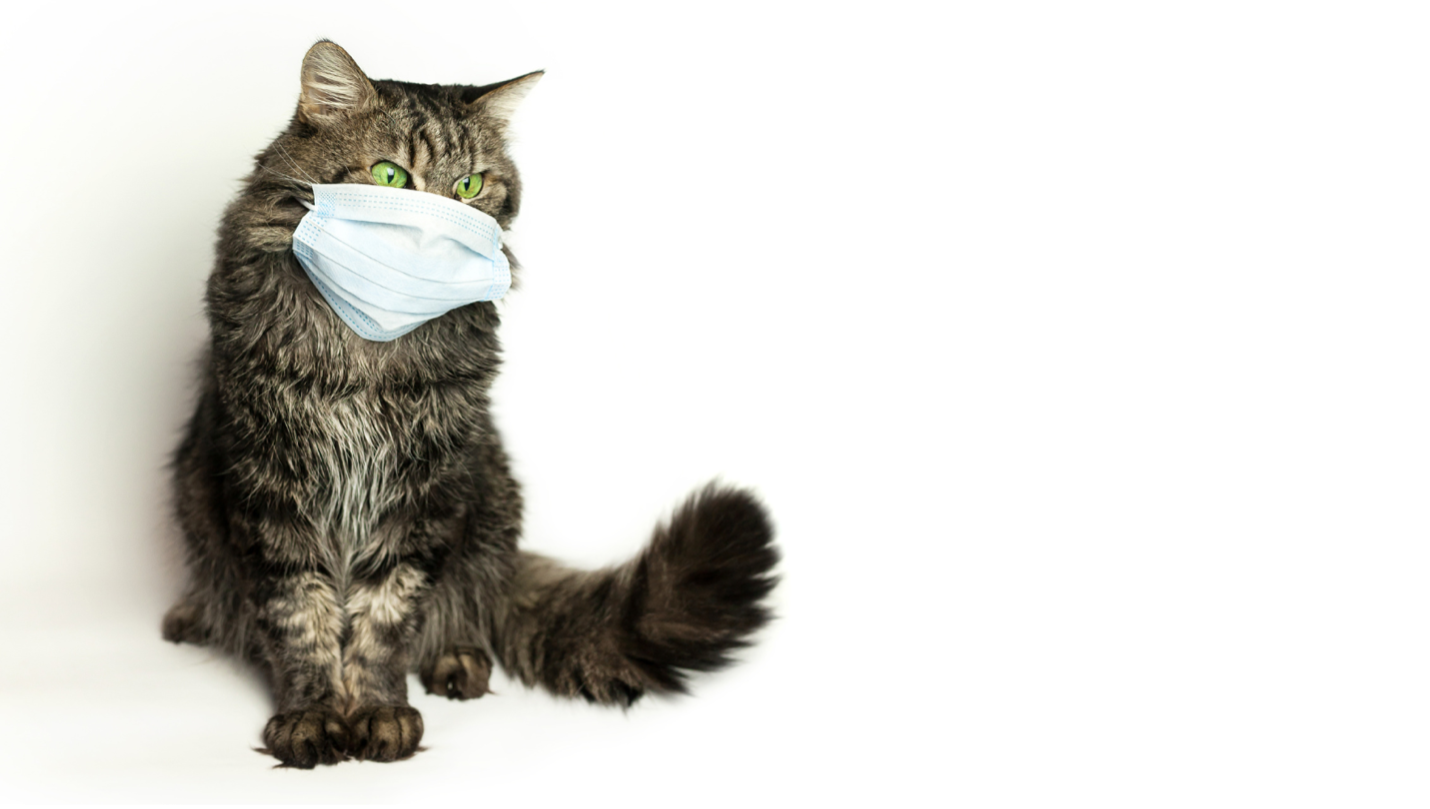Does your cat pull out her hair until she’s bald? Does she scratch her ears and face until her skin bleeds? What about frequent coughing, wheezing, vomiting or diarrhea? These symptoms are indicative of feline allergies.
Feline Flea Allergic Dermatitis
Flea allergic dermatitis is one of the most common allergic reactions for cats. When a flea feeds on the blood of a cat it injects its saliva into the cat’s body. A cat with flea allergic dermatitis will experience intense itching once its body is exposed to the flea’s saliva. The cat will then hyper groom and self-mutilate. The open wounds allow entry for secondary skin infections. Using veterinary prescribed flea preventatives monthly is the best way to keep a flea allergic cat comfortable. Flea preventatives do not prevent fleas from biting pets, they kill all fleas that feed off a treated pet’s blood. For this reason, all pets in the household must stay on a similar preventative regimen. Allowing untreated pets to harbor flea infestations will provide a supply of fleas to constantly bite your allergic cat. Although it will kill the fleas, your pet will continue to have the discomfort of their allergic reaction.
Cat Food Related Allergies
Food allergies can leave cats looking patchy and uncomfortable. Cats with food allergies often mutilate their face and ears with constant scratching. Food allergies can also manifest as constant digestive upset. First your veterinarian will rule out parasitic, fungal, or bacterial infections. Ear mites, fleas or intestinal parasites can cause the afore-mentioned symptoms. If infectious causes have been ruled out your veterinarian will often prescribe a food change. Most likely the cat is allergic to a protein source in the food. Using a food with a novel protein, such as duck or kangaroo may relieve your cat’s symptoms. Several animal nutrition companies have their own version of hydrolyzed diets. Hydrolyzed proteins are broken down so small that the animal will no longer have a reaction to the protein source. Sometimes food change alone is not enough for symptom relief. Oral cyclosporine can be prescribed for your cat’s symptoms. This treatment is an immunosuppressant. It should not be used in patients with cancer or FELV or FIV infections. Patients should also be tested for Toxoplasma gondii infections prior to use.
Feline Asthma and Allergens
Finally inhaled allergens can cause asthma in cats. About 1% of the cats in the United States suffer from asthma. There is no definitive test for asthma. Asthma is diagnosed when other conditions are ruled out. When cats have asthma attacks, they take many rapid shallow breaths, and breathe through an open mouth. Cats with asthma may have increased vomiting. Asthma can range from mild to life threatening to cats. Cats with asthma should not be exposed to smoke, dusty kitty litter, household aerosols, cleaners, and fragrances. They also have sensitivity to pollen so limiting time outdoors is beneficial. Asthma can be successfully treated with corticosteroids and bronchodilators.
Allergens can have a detrimental effect on so many areas of your feline’s health. Please call us today if you would like to discuss any health problems your cat may be experiencing.
